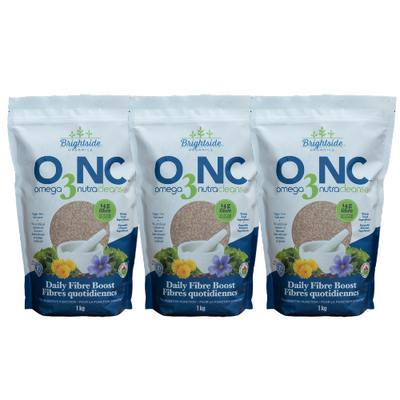Eating In-Season: 4 Reasons to Try It
Let’s face it: most of you who are reading this blog post are doing so in the lap of luxury. We are so incredibly fortunate to be living where we live, and do you know what always reminds us of that? The grocery store.
Because surrounding us are not only foods from far-away countries (pineapples, bananas, dragon fruit), but also ones that are obviously not in-season. For instance, apples and pears are in-season in the fall, but we still get them in the spring. And what about broccoli in the summer and rhubarb in September?
The thing is, we are best to eat what’s naturally grown around us, when it’s in-season. Why? Because Mother Nature is smart, and she knows that we need to be extra hydrated in the summer (watermelon), and that we’ll need more vitamin D in the winter (kale).
Here are 4 reasons to try and eat what’s in season where you live:
In-Season is Fresh
When you consume foods that are in-season, those foods are fresher than others. Why? Because they haven’t sat in a truck on a cross-country trip for a week, and they certainly haven’t crossed continents. When food is fresher, it also retains more of its nutrients, which is your basic reason for eating it in the first place. Healthier equals better.
In-Season is Less Expensive
Again, all those long trips from point A to Z can cost a lot. And it also costs a lot to produce out-of-season goods locally, because it typically requires a greenhouse.
Why pay more for food that won’t nourish as well as in-season food will?
Your Body Loves In-Season Foods
Like what was written above, our bodies are designed to exist within the ebb and flow of Mother Nature. If you try a summer fruit juice cleanse in the winter, you won’t feel good. Similarity, eating a lot of winter produce in the summer won’t work with your body as well, either.
We have to remember that we’re beings of the earth, and that we should be consuming what makes the most sense.
In-Season Means You’re Supporting Local
By spending your money on goods that are produced by local famers, you support your local economy. Your whole neighborhood thrives when everyone is helped and supported, and that’s important for the well-being of the entire community.
Because surrounding us are not only foods from far-away countries (pineapples, bananas, dragon fruit), but also ones that are obviously not in-season. For instance, apples and pears are in-season in the fall, but we still get them in the spring. And what about broccoli in the summer and rhubarb in September?
The thing is, we are best to eat what’s naturally grown around us, when it’s in-season. Why? Because Mother Nature is smart, and she knows that we need to be extra hydrated in the summer (watermelon), and that we’ll need more vitamin D in the winter (kale).
Here are 4 reasons to try and eat what’s in season where you live:
In-Season is Fresh
When you consume foods that are in-season, those foods are fresher than others. Why? Because they haven’t sat in a truck on a cross-country trip for a week, and they certainly haven’t crossed continents. When food is fresher, it also retains more of its nutrients, which is your basic reason for eating it in the first place. Healthier equals better.
In-Season is Less Expensive
Again, all those long trips from point A to Z can cost a lot. And it also costs a lot to produce out-of-season goods locally, because it typically requires a greenhouse.
Why pay more for food that won’t nourish as well as in-season food will?
Your Body Loves In-Season Foods
Like what was written above, our bodies are designed to exist within the ebb and flow of Mother Nature. If you try a summer fruit juice cleanse in the winter, you won’t feel good. Similarity, eating a lot of winter produce in the summer won’t work with your body as well, either.
We have to remember that we’re beings of the earth, and that we should be consuming what makes the most sense.
In-Season Means You’re Supporting Local
By spending your money on goods that are produced by local famers, you support your local economy. Your whole neighborhood thrives when everyone is helped and supported, and that’s important for the well-being of the entire community.


